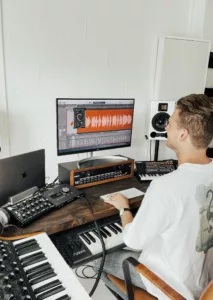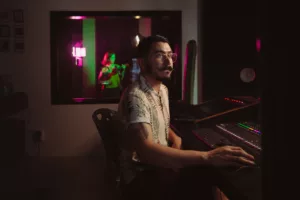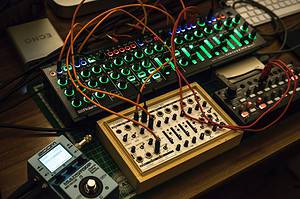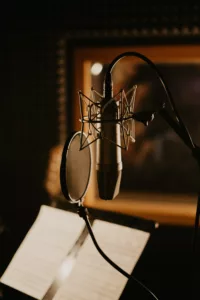
Giving Musicians the Tools to Make Better Music
The 3 Biggest Mistakes I Made When I First Started Mixing.
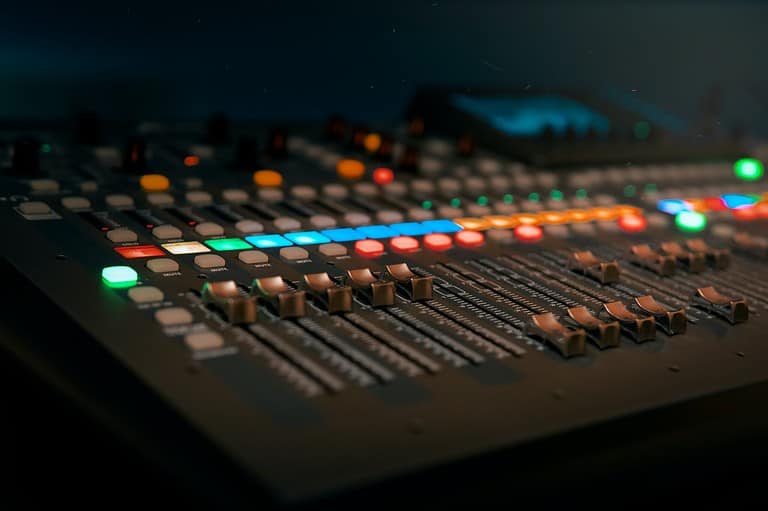
The 3 Biggest Mistakes I Made When I First Started Mixing.
Are you a producer that spends hours on youtube trying to teach themselves how to make better music but still ends up with garbage?
If that’s you this article is gonna help you out. Today, I’m going to share the 3 biggest mistakes I made when I started mixing and why when I changed them, my music sounded so much better!
My name is Mattie. I’m a professional music producer with years of experience and thousands of songs written. If someone had told me these mistakes when I was just starting out, I would be so much farther in my career right now!
When I first started mixing, I had no idea how to do it. I watched youtube video after youtube video trying to teach myself the right way. I struggled through mixes and kept producing. Eventually, through trial and error, I produced songs that sounded better. And now I KNOW exactly what I was doing wrong, and I’m here to share those mistakes with you!
Mistake #1 - I Listened to Instruments in Solo
When I first started creating my own songs, I would spend hours making sure every instrument sounded good… on its own! But when I would play them all together, I would get a gleaming pile of turds. Shiny, polished turds.
As soon as the solo button went off on one track, I would dive into another track to try to make it sound good by itself. This was and still is a recipe for disaster.
All my tracks would sound great as long as they were played by themselves! But guess what? Nobody EVER listens to your tracks by themselves. Your song is a song because it combines all of the tracks together to create a cohesive sound scape.
So if nobody listens to the tracks on your music in solo, then why should you? Great question Mattie! This is something I’ve been asking myself for years because I wasted so much time changing things in solo when everything I was doing was a complete waste of time.
But luckily for you, you don’t have to make the same mistakes as little old me. You can listen to the mix as a whole and make your track sound way better!
If you really do need to hear an instrument by itself because you have a dense mix, or you’re having trouble picking it out from the musical crowd, then instead of soloing it, just turn it up on the track! Once you’ve identified the problems or have the sound you want, then you can turn it back down!
There are a few select cases where I still use solo, but those cases are rare. It’s so much more beneficial to simply turn the track up and turn it back down afterwards. Remember, you’re mixing a song, not a track!
Speaking of tracks, that leads me into my next biggest mistake when I started mixing…
Mistake #2 - I Didn’t Use Reference Tracks
Let me describe mistake number 2 by telling a recurring story that happened when I was mixing during my first year or two:
I would have a great song idea, I would record the song, pick the sounds, nail the arrangement, and then I would mix the night away. I would be so proud of my song.
But flash forward to the next day, I play the song in my car and guess what I hear… a cacophny of bad sounds. A terrible mix. WHAT? Why is the sub bass so loud? Why are my vocals so harsh? What was I thinking with the drum fill being so loud?
The amount of times this exact scenario has happened is extremely discouraging, and it could have been avoided if I had just used reference tracks.
Reference tracks are tracks that sound similar to your track— usually the same genre, the same vibe. You can use them to get a sense of what your track should sound like.
There’s a stark contrast to mixing so it sounds good in a room and mixing so it sounds good everywhere. Wouldn’t you rather have the song sound good no matter where it’s played? I know I would. And the best way to do that is by comparing your mixes to those of the professionals.
While using reference tracks, be sure to match the volumes of the tracks before comparing them. Anything that we hear as louder, will sound better. We want an accurate comparision!
I use a plugin called ADPTR Metric A/B that automatically does that for me and also has a bunch of other useful comparision metrics like dynamic range and EQ. It costs $200 but it frequently goes on sale for $50 if you’re willing to wait.
Also, keep in mind that if your track isn’t completed yet, then just use the reference tracks as a guide rather than exactly what it will sound like. A mastered track and a non mastered track are going to sound different. But the bones of those tracks will keep your plane from veering off.
After figuring out to not solo instruments and to use reference tracks, my mixes were getting better! But there was still one mistake that I was making that was holding me back…
Mistake #3 - I didn’t Give Myself Enough Time to Practice
The first couple of years mixing, I would get frustrated at the music I made. The sounds in my head never sounded like the music I could produce. The grandiose arrangements I heard in my brain never came to fruition through the speakers. But it was all because I wasn’t good enough at the craft. I didn’t have the skills yet. My ears were developing and I didn’t even realize.
The more I produced the more I saw professional music making as a skill that requires practice.
To motivate myself, I like to compare professional music producers and makers to professional athletes. Both sets of people have worked very hard to get where they are. Both sets of people have put in thousands of hours of practice to acheive their level of excellence. That amount of work is something I came to realize as I spent more time with music production.
In the beginning, one of my biggest mistakes was expecting great sounding records when I had little experience in making them. I should have never expected to have amazing sounding mixes right off the bat, when if takes everyone else years to get the same type of results.
Now that I’m older, more handsome, and wiser, I know that creating good music is a long journey. And that it takes time to get better at it!
For anyone out there that’s discouraged from the quality of music they make, you should change your perspecitve. How many hours have you really spent working behind the mixing board? How many songs have you produced? If it sounds amatuer now, will it still sound amatuer if you make a 100 more songs?
Now, this tip doesn’t have a quick fix, but when I finally realized it’s significance it made me want to work that much harder. I stopped seeing bad mixes and crappy songs as bad, but instead, as steps towards better songs in the future. Once I realized how much work it takes, I was motivated to get better through practice and production. And I’d encourage you to do the same!
Conclusion
Those are the three biggest mistakes I made while starting my mixing career.
- I soloed instruments
- I didn’t use reference tracks
- I didn’t give myself enough time to practice
Don’t be a bone head like me. Learn from my mistakes! Happy music making!
-Mattie
Check Out The Rest of Our Blog!
Mattie
Post Info
Join "5 Beat Friday"
Every week you'll get 5 beats about the production world. Join the over 5,000+ other producers bettering themselves through 5 Beat Friday!

